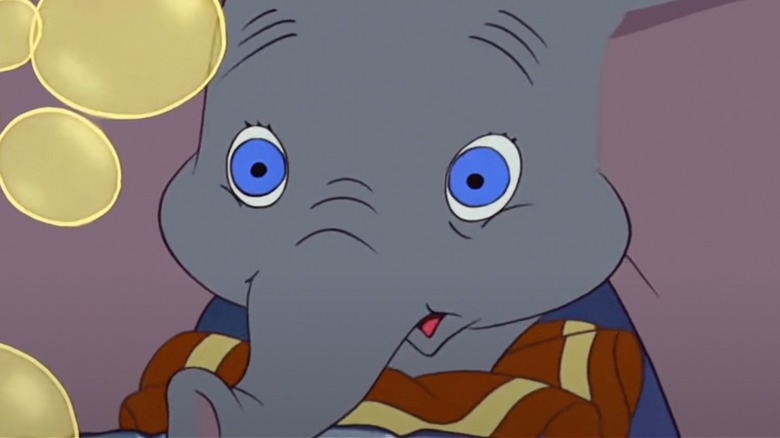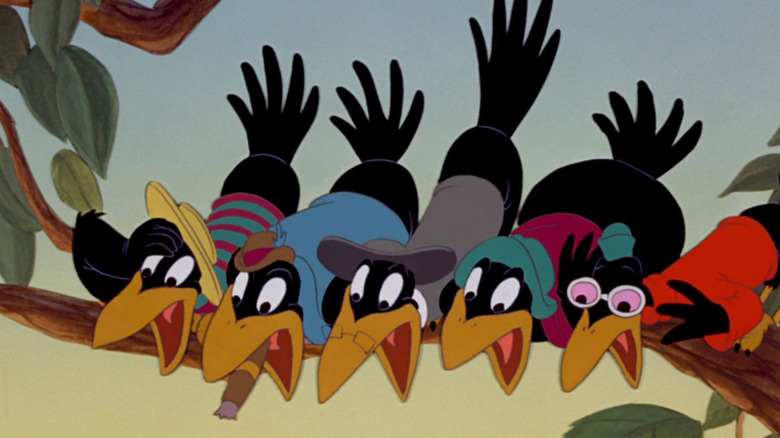The Dumbo Controversy Disney Probably Doesn't Want You To Remember
While most remember the five classic animated features — "Pinocchio", "Dumbo", "Fantasia", "Snow White", and "Bambi" — of Disney's Golden Age during the late 1930s and early 1940s (via Collider) as groundbreaking works of art, there was a big catch that came with most of them. With the budgets getting increased, these films were more often than not laborious efforts that yielded limited rewards, according to Smithsonian Mag, especially as the U.S. was entering World War II.
In the midst of this era, the studio cranked out a much shorter feature, 1941's "Dumbo," which told the story of a baby elephant with huge ears who is ridiculed by other animals in the circus and eventually learns to fly. The film was able to recoup its financial losses (via Los Angeles Times) while also winning an Academy Award for best original score (via IMDb).
As with many of Disney's classic animated films, the storytelling and content shown in "Dumbo" is worth studying compared to more modern-day works. Like many of their films back then, "Dumbo" focuses more on experimenting and pushing the relatively-new-at-the-time animated feature film art form rather than adhering to a typical story structure, for better and for worse. And when looking at the latter part of that equation, there is one notable aspect of "Dumbo" that doesn't fly high with modern audiences.
Dumbo's racial depictions are far from cute and cuddly
Over the decades, "Dumbo" has come under scrutiny for its depictions of African Americans. There's the infamous "Song of the Roustabouts" sequence, which shows faceless black men slaving away in the cold rain while singing about how happy they are to be doing such hard work (via The Washington Post). Yikes.
But probably more well-known and remembered are the crows that appear towards the end of the film. The band of crows, who sing the song "When I See an Elephant Fly" and eventually help Dumbo learn how to fly, have been cited as stereotypes of racist minstrel shows from the time. To top it off, their leader Jim Crow, voiced by white actor Cliff Edwards, shares the name of a 19th century blackface character that became the namesake of segregation laws created following the American Civil War which limited African Americans' rights to resources and education, according to The Washington Post. Much of their animation was influenced by popular African American performers of the time as well.
Despite some individuals defending the characters, the scene is still seen as problematic by many. Tim Burton's 2019 live-action remake would not feature the crows in any capacity. Similarly, there were rumors that Disney+ would remove the sequence when the film became available on the streaming platform, The Hollywood Reporter noted. However, this never came to fruition as the original version of the movie remains intact on the streamer for viewers six years old or older, alongside movies such as "Peter Pan," "The Aristocats," and "Swiss Family Robinson" (per WDW News Today).

